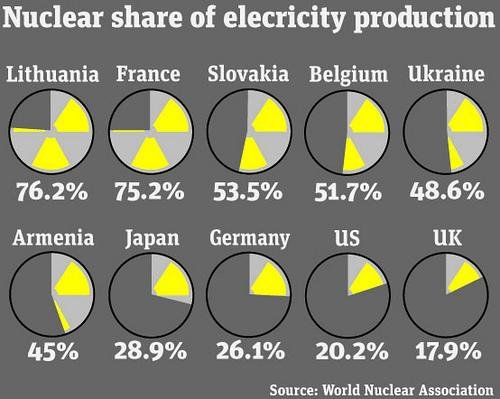- Joined
- 6 November 2010
- Messages
- 4,250
- Reaction score
- 3,193
I am having a little trouble peering through the officialese in the IAEA's message.
Besides, why would Tepco participate in a scam which can only harm what's left of their reputation? Or their finances?
I may misunderstand this, but I take this to mean that the Japanese government aims to reduce the additional radiation dose as a result of the Fukushima mishap to 1 millisievert per year. I do not know what the radiation dose was before the event. I do not know the current radiation dose. I assume the radiation doses are those which can be measured in Fukushima Prefecture.The Mission encouraged the Japanese government to strengthen its efforts to explain to the public that an additional individual radiation dose of 1 millisievert per year (mSv/y), which it has announced as a long-term goal, cannot be achieved in a short time by decontamination work alone.
So: is the current radiation dose in the affected area within the safe range of 1 to 20 mSv/y? The IAEA's message doesn't say. If it were, the Japanese government's task would be to convince Fukushima residents that current radiation levels are safe. Publish radiation doses before and after the event, international recommendations for safe levels, and so on. Instead, residents are yet again advised to stay away from their homes, and funds are still earmarked for further cleanup operations. I have some difficulty in accepting the Japanese would be that wasteful, particularly if simply broadcasting the good news would save loads of money.In remediation situations, with appropriate consideration of the prevailing circumstances, any level of individual radiation dose in the range of 1 to 20 mSv/y is acceptable and in line with international standards and the recommendations of the relevant international organisations such as the IAEA, International Commission on Radiological Protection (ICRP), United Nations Scientific Committee on the Effect of Atomic Radiation (UNSCEAR) and World Health Organisation (WHO).
Besides, why would Tepco participate in a scam which can only harm what's left of their reputation? Or their finances?


